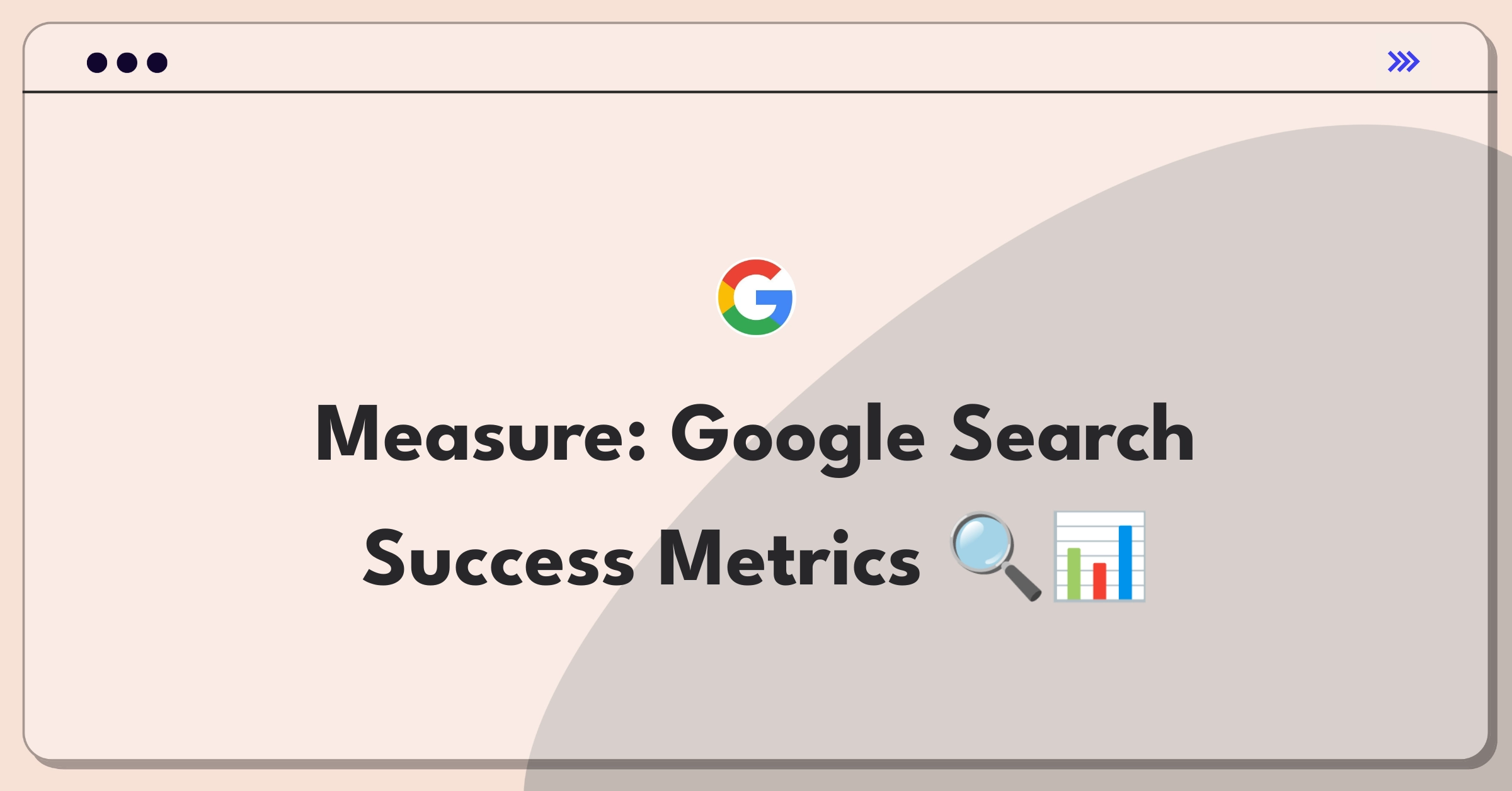Introduction
Measuring the success of Google Search is a complex challenge that requires a multifaceted approach to product success metrics. To tackle this effectively, I'll follow a structured framework covering core metrics, supporting indicators, and risk factors while considering all key stakeholders. This approach will help us comprehensively evaluate Google Search's performance and guide strategic decision-making.
Framework Overview
I'll follow a simple success metrics framework covering product context, success metrics hierarchy, and strategic initiatives.
Step 1
Product Context
Google Search is the world's leading search engine, processing billions of queries daily. It aims to organize the world's information and make it universally accessible and useful. Key stakeholders include:
- Users: Seeking accurate, relevant information quickly
- Advertisers: Looking for targeted reach and ROI
- Content creators: Wanting visibility and traffic
- Google itself: Aiming for market dominance and revenue growth
User flow typically involves:
- Query input: Users type or speak their search query
- Results display: Google presents relevant web pages, images, videos, etc.
- Interaction: Users click on results, refine queries, or complete their task
Google Search is central to Alphabet's strategy, driving significant ad revenue and serving as a gateway to other Google services. It competes primarily with Bing, DuckDuckGo, and vertical search engines.
Product Lifecycle Stage: Mature, but continually evolving with AI and new features.
Software-specific context:
- Platform: Cloud-based, with distributed infrastructure
- Integration: Connects with numerous Google services (Maps, Images, etc.)
- Deployment: Continuous updates with careful A/B testing
Subscribe to access the full answer
Monthly Plan
The perfect plan for PMs who are in the final leg of their interview preparation
$66.00 /month
- Access to 8,000+ PM Questions
- 10 AI resume reviews credits
- Access to company guides
- Basic email support
- Access to community Q&A
Yearly Plan
The ultimate plan for aspiring PMs, SPMs and those preparing for big-tech
- Everything in monthly plan
- Priority queue for AI resume review
- Monthly/Weekly newsletters
- Access to premium features
- Priority response to requested question


.png)